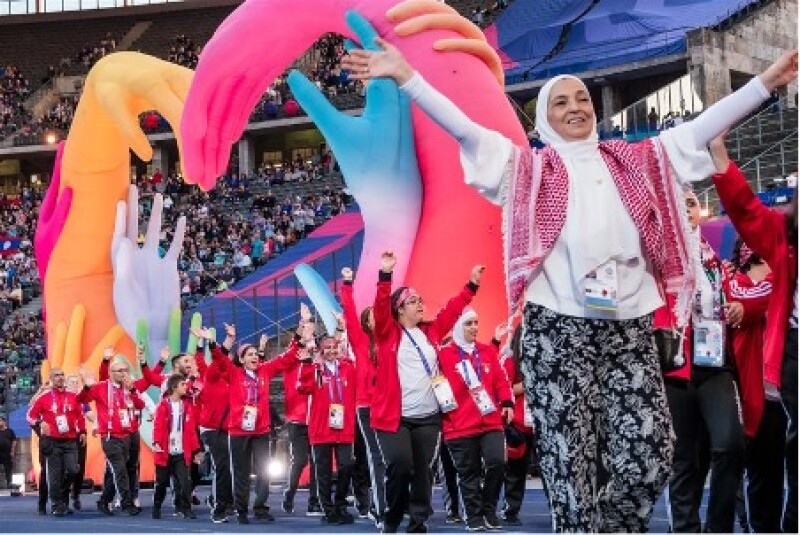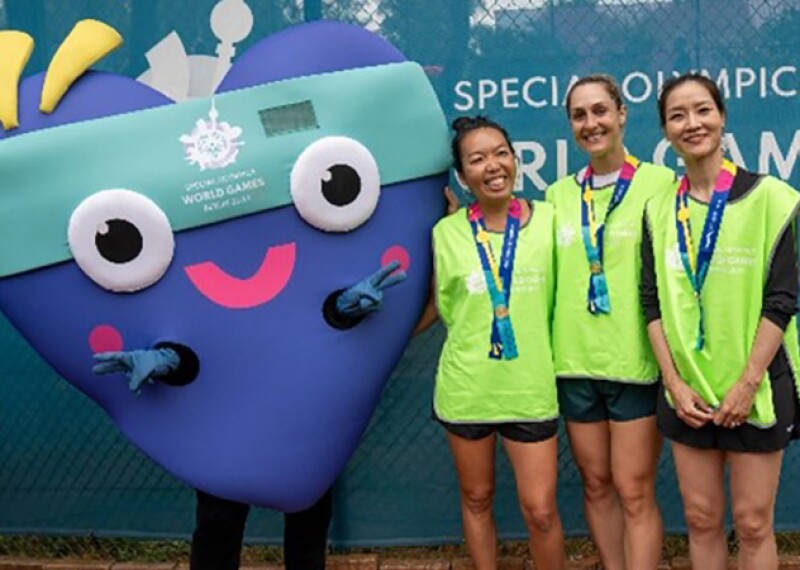The Special Olympics World Games in Berlin, which concluded on Sunday 25 June, was a moment of glorious historical audacity. For a week of competition, 6,500 athletes with intellectual disabilities from 176 nations and six continents showed the world who they are — starting at Olympiastadion, the monument that once served as the propaganda breeding grounds for the dark forces of Germany’s fascist dictatorship in the 1930’s.
For nearly 100 years, the words "Berlin Olympics" have meant only one thing: the spectacle of 1936, when sports were hijacked by an ideology of brutality and terror. But this year's World Games promised to outshine that memory. Not just with a parade of athletes far outnumbering the 5,000 of the 1936 games — but also by being one of the largest celebrations of inclusion in German history.
These Games offered the opportunity to bring the world together as few other events can. Here people with and without disabilities, people of many nations, cultures, beliefs, and religions, met as competitors and friends. They defied prejudices through the power of sport.
Special Olympics and the Federal Republic of Germany brought to Berlin not just athletes, coaches, and families, but also heads of state, ministers of education and sports, and experts on global health and development. Together they committed to act with greater urgency and to lift up those among us who have been excluded from our communities – those with intellectual disabilities.
People with intellectual disabilities have long been among the most isolated and marginalized on earth. This is especially true in schools. Students who need special education are denied it, because these services are consistently underfunded and under-resourced in countries rich and poor. Social isolation, bullying and rejection are endemic problems. Their development as children and young adults suffers — their vast human potential is squandered.

It is time for governments to significantly increase investment in social inclusion for students with intellectual disabilities. This starts with universal access to a high-quality education, the foundation for future prosperity, self-worth, and self-reliance. People with intellectual disabilities make up about 3% of the global population — and so it is only fair and just that 3% of education budgets should be allocated to programs that address their well-being and inclusion in their school communities.
Consider this a starting point, a good first step toward reversing a long history of underfunding and neglect: 3% for the 3%.
Especially now, in the wake of a global pandemic that was disastrous for education. A recent study by the Bertelsmann Stiftung found that Germany, like many countries, faces significant challenges in improving graduation rates and recovering from the learning loss caused by COVID-19.
Social inclusion programming – including sports – improves student retention, boosts academic performance, and increases students’ sense of belonging, for both students with and without intellectual disabilities. One proven model is Special Olympics' Unified Champion Schools, in which young people with and without disabilities compete on the same sports teams, join inclusive student clubs and community organizations, and become youth leaders. This strategy is about unifying all students regardless of disability, using sports as a catalyst for changing attitudes and behavior.
Germany and the United States often lead by example, and this World Games, hosted by Germany and powered by a global grassroots movement that began in the U.S., showed to the world how to set the highest possible ambition for inclusion. Taking steps toward ensuring an equitable education for all will honor and extend the legacy of the Berlin World Games, providing Germany with an opportunity to build a new Olympic legacy that increases social inclusion at home and abroad.
Leni Riefenstahl’s “Olympia” celebrated an idealized Aryan athlete. That vision of the Olympics told a story about competition and victory that was deeply untrue, deceptive, and harmful. History's burden is heavy, but every new generation brings opportunities for new stories. The athletes who marched into the Olympiastadion reflected a spirit of competition that is far more powerful and enduring because it is shared by people of all abilities. Germany’s embrace of these Games – hosting athletes in their homes, cheering them on with abandon from the sidelines, and celebrating their victories – cannot change the past, but it can demonstrate how the arc of history will bend toward justice, dignity, and inclusion when we embrace the humanity of all people.
Timothy Shriver, Ph.D. is the chairman of Special Olympics International











